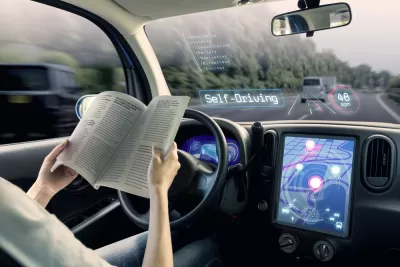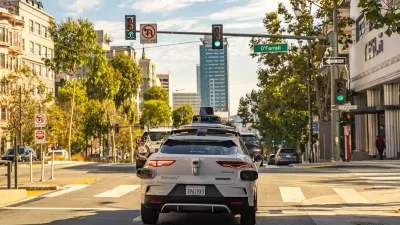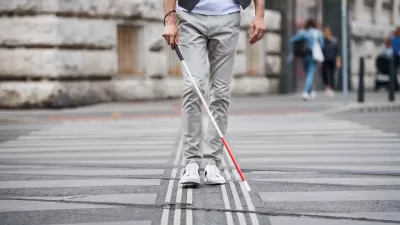States tend to default to national standards for regulating AVs, but federal officials have been slow to implement rules directed specifically at autonomous vehicles.

Wyatt Gordon asks whether states, more specifically Virginia, should create their own legal frameworks for regulating autonomous vehicles, or default to national standards, as many do now. “As is often the case in the United States, the regulation of autonomous vehicles is largely left to the states, resulting in a patchwork of conflicting and confusing policies where some sort of national approach ought to exist.” While states have the right to create laws regulating the technology, Gordon points out, few have taken steps to do so.
Amanda Hamm, the Virginia Department of Transportation’s connected and automated vehicle program manager, said that in the Commonwealth, “Currently AVs are basically just being treated as human drivers. Any law that applies to a person operating a vehicle also applies to whoever is operating that autonomous vehicle.”
According to Gordon, “So far the NHTSA has done little to prevent AVs from running red lights, swerving toward concrete barriers, or even killing pedestrians; however, last month the agency launched an education campaign to help consumers understand that systems like those from Tesla called “autopilot” and “full self-driving” don’t truly mean what they say (and could kill you or others).”
As an example of an existing AV program, Gordon points to Fairfax County’s Relay electric shuttle, which travels at 10 miles per hour over a one-mile route on a limited schedule, with a ‘safety steward’ on board. The shuttle is designed as a pilot for assessing the functionality of the technology and “how the shuttle itself interacts with other vehicles on the road and pedestrians,” said John Zarbo, the operations section chief at Fairfax Connector, which operates Relay. “County leaders have considered other shuttle routes around the Reston or Franconia Metro stations, but the limits of the technology have so far prohibited a second shuttle coming online. Whether it’s fast-flowing highway traffic or a complex urban environment, humans are far better at adapting their behavior to changing conditions.”
FULL STORY: Should autonomous vehicles be regulated in Virginia?

Trump Administration Could Effectively End Housing Voucher Program
Federal officials are eyeing major cuts to the Section 8 program that helps millions of low-income households pay rent.

Planetizen Federal Action Tracker
A weekly monitor of how Trump’s orders and actions are impacting planners and planning in America.

Ken Jennings Launches Transit Web Series
The Jeopardy champ wants you to ride public transit.

California Invests Additional $5M in Electric School Buses
The state wants to electrify all of its school bus fleets by 2035.

Austin Launches $2M Homelessness Prevention Fund
A new grant program from the city’s Homeless Strategy Office will fund rental assistance and supportive services.

Alabama School Forestry Initiative Brings Trees to Schoolyards
Trees can improve physical and mental health for students and commnity members.
Urban Design for Planners 1: Software Tools
This six-course series explores essential urban design concepts using open source software and equips planners with the tools they need to participate fully in the urban design process.
Planning for Universal Design
Learn the tools for implementing Universal Design in planning regulations.
Ada County Highway District
Clanton & Associates, Inc.
Jessamine County Fiscal Court
Institute for Housing and Urban Development Studies (IHS)
City of Grandview
Harvard GSD Executive Education
Toledo-Lucas County Plan Commissions
Salt Lake City
NYU Wagner Graduate School of Public Service




























